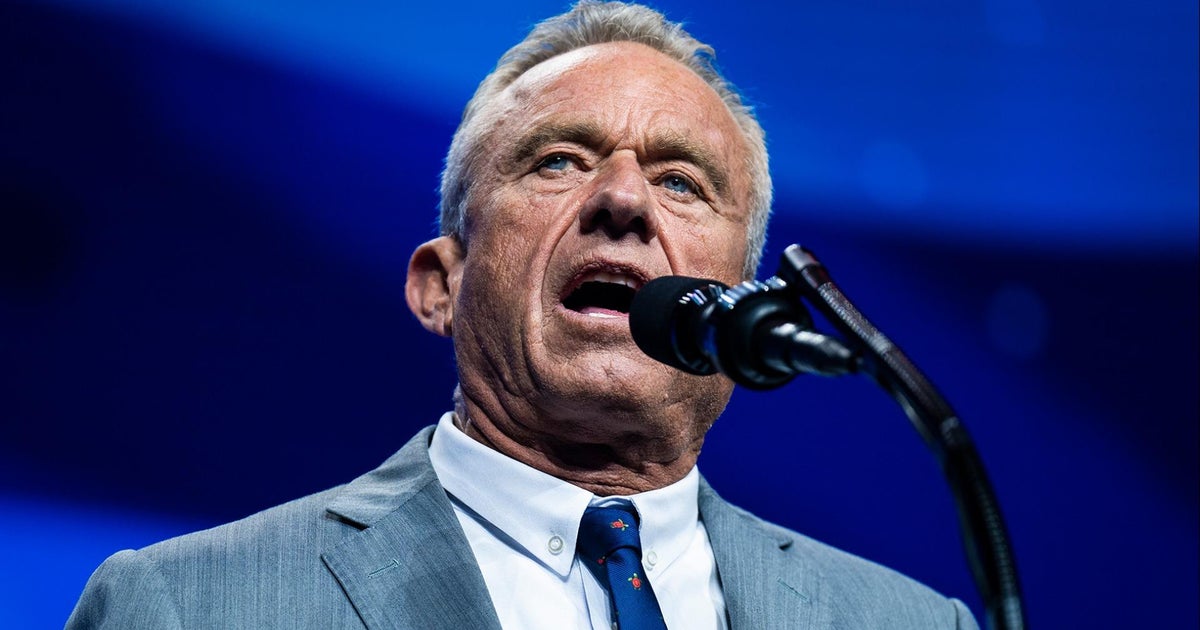Citing coronavirus, states urge Supreme Court to reconsider order on "public charge" rule
New York, Connecticut and Vermont asked the United States Supreme Court on Monday to consider lifting or modifying a decision in February that has allowed the Trump administration to implement the so-called "public charge" immigration rule. The states warned the regulation is having a "destructive" impact on the nation's response to the deadly coronavirus pandemic.
The attorneys general in the three northeastern states said the sweeping rule is discouraging immigrants from accessing medical care and public benefits, hindering nationwide efforts to contain the highly contagious virus, which has killed more than 23,000 people in the U.S. The filing cited more than a dozen declarations by doctors, local officials and advocates who said immigrants across the country fear they could jeopardize their immigration status by seeking medical treatment and government aid.
"Although this case has always concerned issues of public health and welfare, the COVID-19 outbreak and its ramifications on public health and the economy present sudden and stark new circumstances not previously considered by the Court and have vastly changed and amplified the irreparable harms caused by the Rule," the filing by the three states read.
The rule, which was initially blocked by several courts last year until the Supreme Court intervened in February, overhauled the centuries-old "public charge" term in U.S. law and gave immigration officials more power to deny green cards or visas to immigrants or would-be immigrants they determine rely — or could rely — on certain public benefits while in the U.S.
Since immigrants in the U.S. applying for green card status don't qualify for most welfare programs, the rule mostly affects those seeking to move to the country from abroad. To determine whether prospective immigrants are likely to become a "public charge," caseworkers now consider their wealth, age, educational skills, English language proficiency and health.
In one of the declarations in Monday's filing, Eden Almasude, a physician at the Yale School of Medicine, said two of his patients feared accessing medical treatment for coronavirus because they believed doing so "might negatively impact their immigration status." Almasude also detailed cases of other immigrants with coronavirus symptoms being afraid to get tested.
The rule has also affected immigrants impacted by the paralyzation of the U.S. economy, Almasude said. "Recently, one of my clients described how they had lost their income and were facing food insecurity. However, they did not want to seek food stamp benefits because they worried that it looked 'bad' on an immigration application to get such benefits," he wrote in his declaration.
In another declaration, the top official at the immigrant affairs office in New York, Bitta Mostofi, said her team has received calls from green card holders who are afraid that applying for unemployment benefits could have negative consequences on future petitions to adjust their status.
In California's Salinas Valley, immigrant farmworkers with possible coronavirus symptoms are not going to the hospital over fears of "negative immigration consequences" should they use publicly funded medical treatment, according to a declaration by doctor Pedro Moreno, who is leading the coronavirus response for the clinics at the Monterey County Health Department.
Farmworkers have been excluded from California's state-wide stay at home order as their work has been deemed essential during the pandemic. Moreno said he believes many of them have been infected by other farmworkers in the field. He said he has asked immigrants with symptoms to stay at home, but they've told him they can't stop working.
"They have no other income or resources, and their families will otherwise go hungry," Moreno wrote. "They are afraid to apply for nutrition assistance programs, such as CalFresh, the California Supplemental Nutrition Assistance Program, due to fear that if they receive those benefits, the public charge rule will negatively affect their immigration status in the future."
Some farmworkers suffering from extreme anxiety and depression as a result of the pandemic are also fearful of receiving behavioral health services, according to Moreno.
As the coronavirus pandemic has upended American life in the past few weeks, advocates and states have been calling on the administration to stop enforcing the new public charge test until the public health crisis abates.
Last month, U.S. Citizenship and Immigration Services (USCIS), which administers the rule, said it would not suspend the test. But the agency issued a statement urging immigrants with COVID-19 symptoms to seek medical treatment. USCIS said it would not consider "testing, treatment, nor preventative care (including vaccines, if a vaccine becomes available) related to COVID-19" in its determination into whether an immigrant or prospective immigrant is — or is likely to become — a "public charge."
Additionally, USCIS said it would allow immigrants to indicate whether social distancing or quarantine measures impacted their work and schooling, and prompted them to use public benefits during the crisis. "For example, if the alien is prevented from working or attending school, and must rely on public benefits for the duration of the COVID-19 outbreak and recovery phase, the alien can provide an explanation and relevant supporting documentation," the March statement read.
In Monday's filing, however, advocates and physicians said the statement has done little to quell angst among immigrant communities.
"Fear and confusion has persisted in my patient population in regards to the public charge and access to COVID-19 related care and other benefits, even after this guidance was issued," Moreno wrote. "Many of my patients appear unaware of the guidance."




